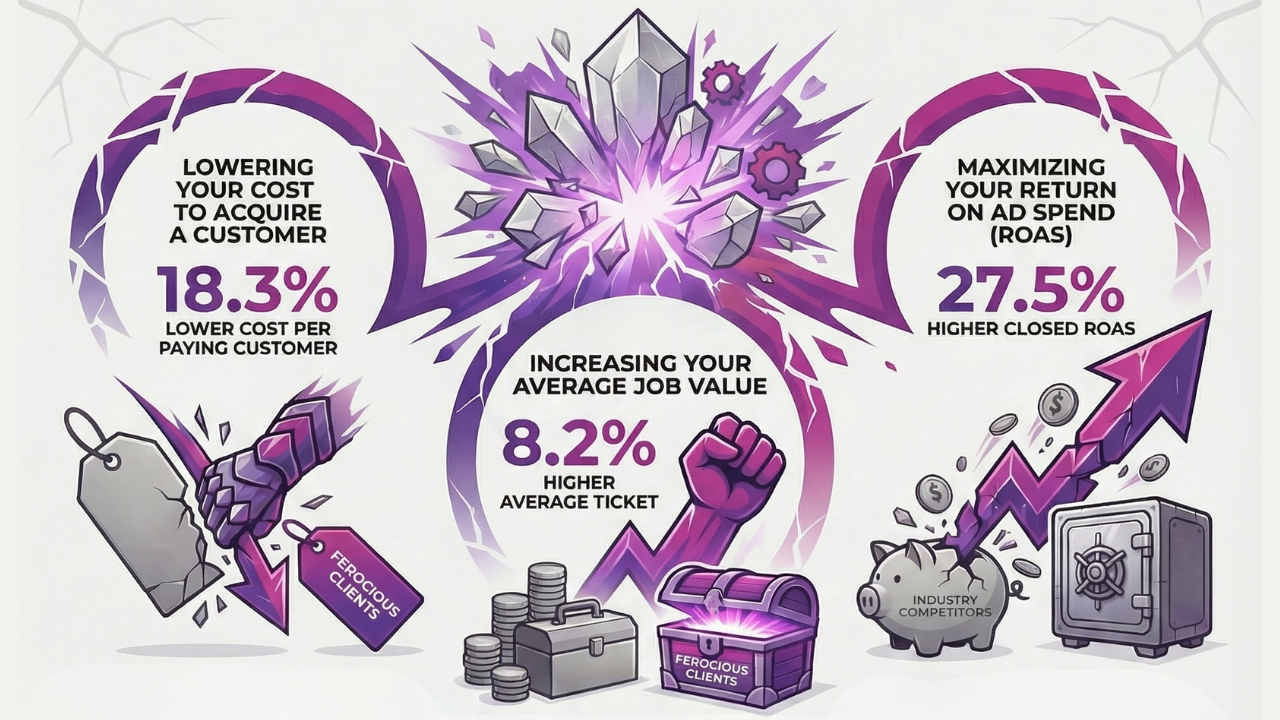800-454-9103

9 Biggest Mistakes Of Self-Managed SEM Campaigns
Every business owner knows the feeling all too well: wanting control over most, if not all, aspects of your business – including digital marketing. However, as experts in the digital sphere, we know that taking a hands-on approach isn’t always the most effective way to succeed in all of your marketing efforts. Why? Unless you have all of the tools, resources and knowledge needed for a marketing solution, it can be pretty easy to make a mistake.
Below, take a look at the most common mistakes we’ve seen in self-managed SEM campaigns.
- Not using keyword match types. By default, Google will enter your keywords as broad match. This means you are leaving it up to Google to consider the relevancy of a user’s search to your keywords. It is a better idea to use broad match modified, phrase, and exact variations of keywords so that there is more control over what is contained in the search query that triggers your ads.
- Lack of negative keywords. Negative keywords prevent your ads from showing for search queries that contain irrelevant content. For example, if you were a doctor targeting the phrase match keyword “Botox injections,” your ad would be eligible to appear if someone searched “Can you drink wine after Botox injections?” This searcher is looking for information post-injection and likely will not turn into a customer for you. Having the negative keyword “wine” would prevent this from triggering your ads in the future.
- Not utilizing ad extensions. Ad extensions are a great way to show extra text and links in your ads. This can be done through sitelinks (extra links to pages of your website), location extensions (displaying the address to users who are nearby), call extensions (displaying your phone number), callout extensions (bulleted selling points), and more. The use of ad extensions greatly increases CTR since they make the ad visually stand out and provide more information.
- Not utilizing mobile preference ads. Users on mobile devices behave differently than those on desktop computers. For example, people can search and call instantly from their phones. For this reason, ads should speak to the device a searcher is on. Mobile preference ads give the opportunity to use phrases like “Call Immediately” or “Buy From Your Phone”. Mobile ads should also be shorter than desktop ads, as phone screens are much smaller.
- Poor grammar/structure in text ads. Many ads include misspellings or improper punctuation that reduce the credibility of the business. Other common mistakes include not using capital letters for the beginning of each word, not including a call to action, and not directing ads to the most specific page of the website.
- No bidding strategies or lack of bid knowledge. Often times people who are managing their SEM campaigns themselves do not know what to set their bids to and end up setting them extremely low. This can result in not getting substantial, or sometimes any traffic. There is also a lack of knowledge on how to use automated bidding rules, which can be extremely useful in staying up to date with the estimated first page bid estimate and bid changes based on performance data.
- Irrelevant keywords. When it comes to keywords, being specific rather than general is the best strategy. For example, an ENT doctor trying to target allergy sufferers should target keywords such as “allergy doctor, ” not general terms like cough, itchy, sneezing, etc. These keywords can result in a ton of wasted spend.
- Poor account structure leading to general ads. SEM campaigns are structured by campaign > ad group > keywords & ads. In our experience, we’ve seen accounts that have only one campaign and one ad group that contains keywords targeting the company’s whole business line. In this situation the ads must be general rather than specific to one product or service. By breaking out the keywords by themes into separate ad groups we can create more specific ads which speak directly to a user’s query.
- General upkeep issues: maintenance of keywords, negative keywords, disapproved ads. Lastly, many do it yourself SEM managers do not have the time or knowledge to keep up with the account, which can lead to disapproved ads, wasted spend, etc. It is better to have an experienced SEM analyst who is up to date on industry standards checking in on the account and updating it.
Considering that making even the smallest mistake can hinder your SEM efforts, your best bet is to have your campaign built and managed by a professional!
At Ferocious Media, our SEM team will work to put your business in front of the right customers, at the right time. Visit our website learn more about our search engine marketing services or to get started on creating a campaign with us, today.
Recent News

Unleashing Ferocious Results: Our Q4 2025 Advertising Performance

Twenty Years of Ferocious Media: A Founder Q&A on Staying Relevant, Efficient, and Accountable

Does Blogging Still Matter for SEO in the Age of AI?

GBP Radius Tightening: Why “Near Me” is Volatile Going Into 2026

The Real Way to Measure Home Services SEO Success (Beyond Rankings)

Seasonal Strategy: Winter HVAC + Holiday Slowdowns

How AI-Driven Automation Is Redefining PPC in 2026
Ready for success?
Take the first step toward accelerating your business growth today!


